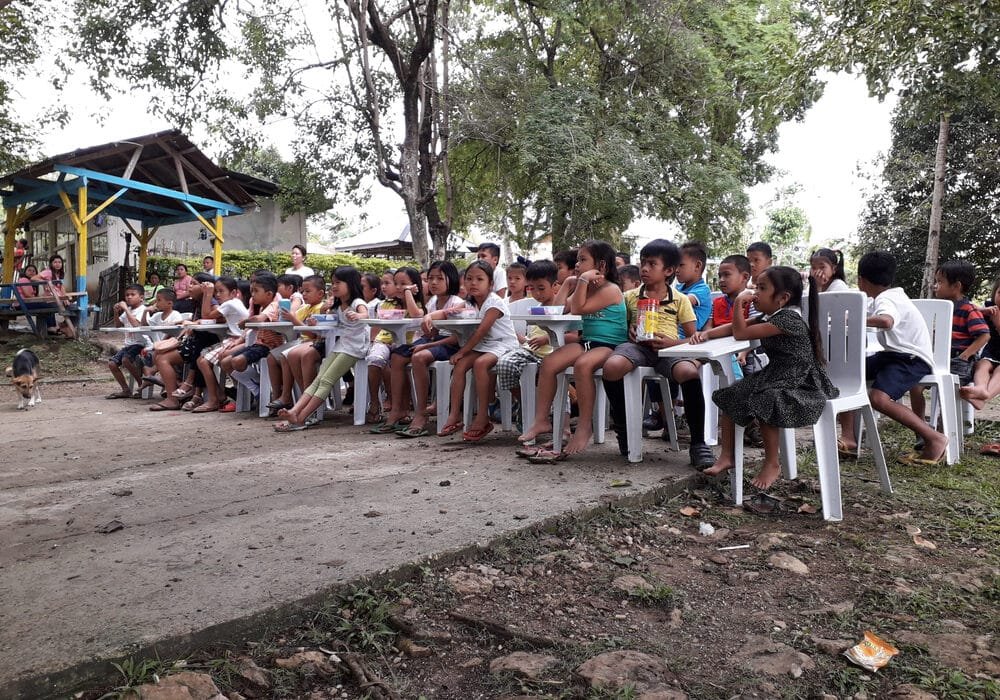The Department of Education (DepEd) and the National Electrification Administration (NEA) have signed an agreement to supply electricity to remote public schools. These “last-mile schools,” located in isolated and underserved areas, will soon have reliable power through this partnership.
The project will be funded by the government and grants, with support from private entities, electric cooperatives, and local governments. DepEd stated that powering off-the-grid schools will help students gain a solid education and access better opportunities.
“In the past, power has given us access, power has given us entertainment, and power has facilitated commerce and e-commerce. Kaya itong binibigay natin ngayon, hindi lang kuryente, hindi lang ilaw ‘yan, pag-asa ang binibigay natin sa ating mga kababayan (We’re giving not just electricity or light to our fellow Filipinos. We’re giving them hope),” stated DepEd Secretary Sonny Angara.
Meanwhile, NEA Administrator Antonio Mariano Almeda highlighted the role of education in children’s lives. “This moment reflects a shared vision and a unified effort to address one of the most vital aspects of development—ensuring that every child, no matter how remote their location, has access to the transformative power of modern education,” he said.
(Also read: DOE Backs 16 Offshore Wind Projects in Western Visayas)
Promoting renewable energy in public schools
The memorandum of agreement between DepEd and NEA also aims to advance the use of renewable energy in the country. As part of this initiative, solar photovoltaic (PV) systems will be installed in remote areas, benefiting around 1.6 million students.
DepEd will select and prioritize schools that need electricity, secure permits from local authorities, and provide logistical and financial support for the project. At the same time, NEA will oversee the installation of solar panels, conduct system monitoring, and carry out evaluations to ensure successful implementation.
According to NEA Administrator Antonio Mariano Almeda, equipping two classrooms with solar PV panels and battery storage would amount to P1.6 million. He noted, “Hopefully, by the first quarter of this year, we will be able to tender biddings already. And we have to understand, we still use carabaos to pull the materials and bring them to the mountain.”
(Also read: Sogod, Cebu to Host 100-MW Solar Farm by Korean Firm)
AuroraPH program
Complementing the government’s initiative is the AuroraPH program, which supplied Pangan-an Elementary and High Schools in Lapu-Lapu City, Cebu, with solar energy, internet access, and digital resources.
The project aligns with the Aboitiz Foundation’s mission to support 300 off-grid schools by integrating technology and clean power. It aims to enhance learning opportunities by providing students and educators in isolated areas with essential digital tools and educational resources.
Delivered by boat to Pangan-an Island, solar panels were set up to supply renewable energy to local schools. Each institution received two 5-kilowatt solar systems, consisting of 10 panels, a 5-kilowatt (kW) inverter, and a 51.2-volt (V) 1000-ampere-hour (AH) battery. This setup lowers power expenses, allowing schools to redirect funds toward enhancing education.
Dr. Marilyn Andales, Superintendent of the DepEd Lapu-Lapu City Division, conveyed appreciation for the project, noting its profound role in improving learning materials and opportunities.
Sources:
https://www.philstar.com/the-freeman/cebu-news/2025/02/10/2420543/far-flung-schools-get-power-soon
https://newsinfo.inquirer.net/2032385/deped-nea-to-bring-electricity-to-last-mile-schools
https://business.inquirer.net/505277/nea-doe-to-install-solar-power-at-far-flung-schoolshttps://tribune.net.ph/2025/01/23/auroraph-brings-solar-power-internet-to-cebus-remote-schools


